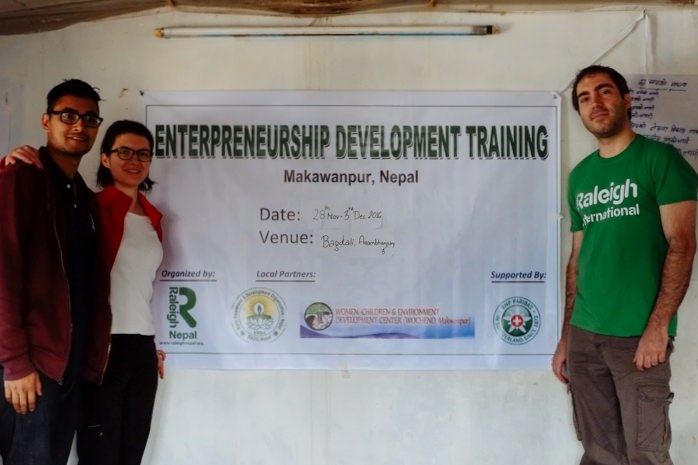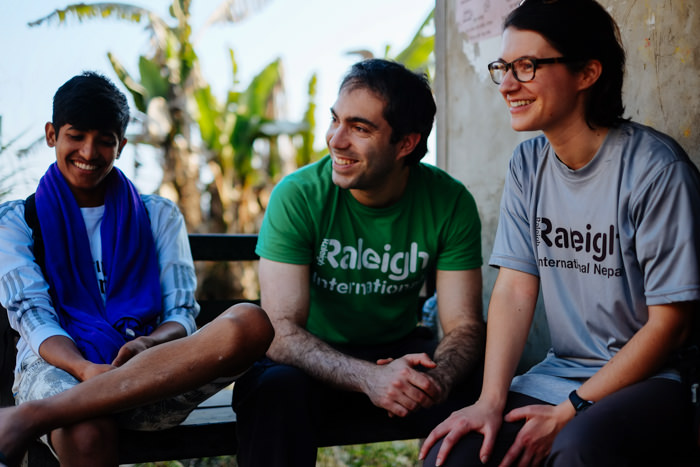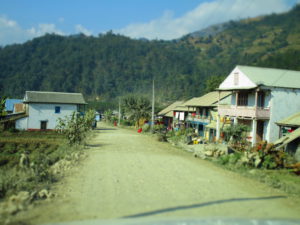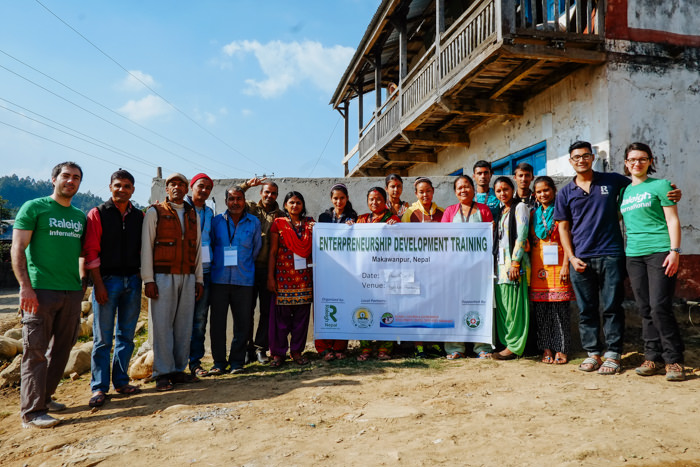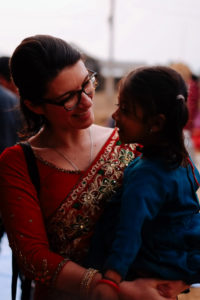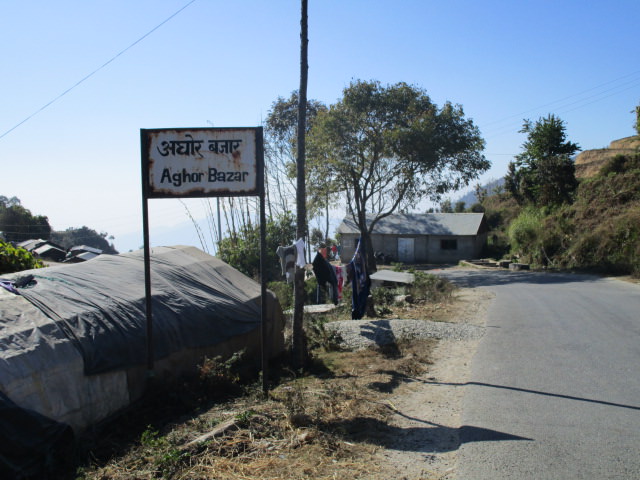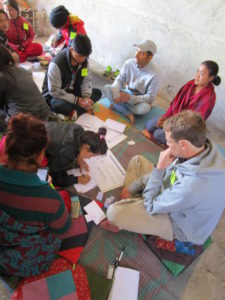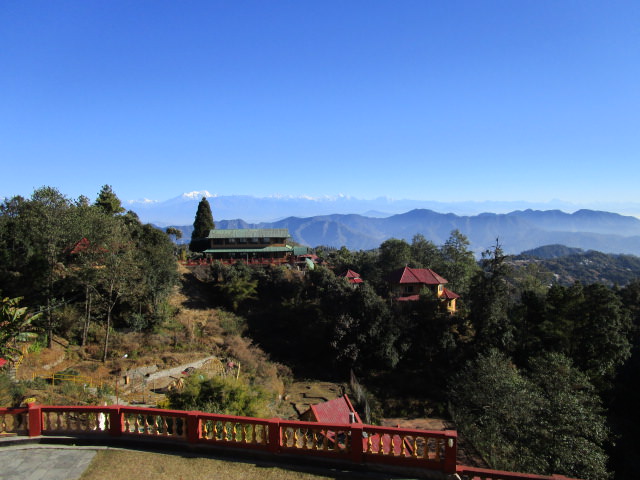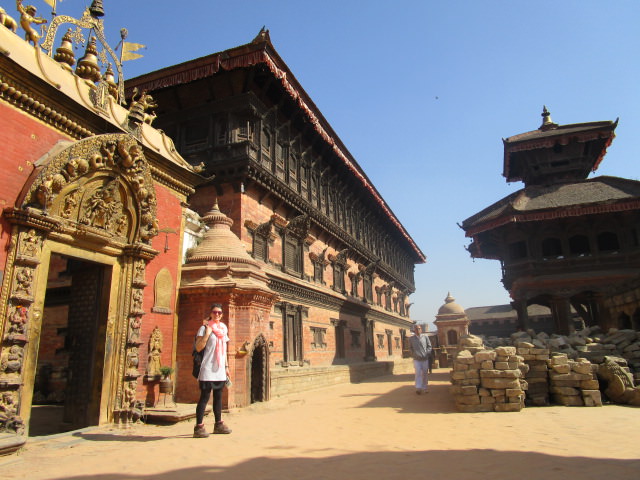
Training Nepalese youths: BNP Paribas Suisse & Raleigh International
BNP Paribas (Switzerland) signed for the first time in 2016, a 3-year partnership with the British organisation Raleigh International, who has been present in Nepal for almost a year now. The aim of this partnership is to work together towards the rebuilding and sustainable development of the country.
The partnership between BNP Paribas (Switzerland) and Raleigh International
It’s in view of this that two of the bank’s co-workers were chosen to assist with the training of young entrepreneurs.
From the 26th November until the 11th December 2016, BNP Paribas Switzerland credit analysts Joana Monteiro and Aurélien Dartevelle were assigned to assist Raleigh in their support actions for 16 Nepalese youths living in villages in the District of Makwanpur, 80km South of Kathmandu.
Joana Monteiro and Aurélien Dartevelle, Credit Analyst at BNP Paribas in Switzerland
A two-week training programme provided the youths with support regarding issues such as: creating a business plan, financial monitoring, product development, product/service marketing, business management and access to funding. The overall goal was to help these young trainees to start their own businesses, to establish a stable source of income and to enable them to stay in their villages and not be forced to leave their country.
Joana and Aurélien share their log book with us.
The first week in the village of Bagdali
The village of Bagdali, in the subtropical Terai region, 80 km from Kathmandu
Our adventure began in Bagdali, a village 80km from Kathmandu in the subtropical region of Terai. Upon arrival, we were greeted warmly by the village inhabitants and were lodged with local families, completely immersing us into their culture and daily routine.
Joana and 3 other English and Nepalese Raleigh volunteers were hosted in Gita’s home. Gita, a local woman from the village, proved to be a funny and sociable host. She enjoyed having lots of people at her house and generously prepared dinner every evening, a meal which other volunteers willingly took part in. She owns a cow and a baby calf, born just before our arrival, and so we regularly got to drink fresh milk, a real delight!
Aurélien, for his part, was received by the family of one of the girls participating in our training course, Radhika. It’s a very lively household, full of children. It was at one of the evening meals in this house that we got to taste a spiced rice pudding… the most delicious in the world, according to Joana at least!
Training course in entrepreneurship
The group of trainees
With the help of Raleigh’s Nepalese volunteers, we gave our training course on entrepreneurship to a group of 16 highly motivated young people – men and women alike – who would like to start their own businesses in the production of chickens, goats, homemade artisanal products based on leaves and in setting up small grocery stores in the village. Most of the trainees didn’t speak English, so help from our Nepalese colleagues was essential for us to be understood! Some of the trainees explain to us that they’ve emigrated in the past to the Middle East, often to Qatar or the United Arab Emirates, but that they decided to return in order to be close to their families and to find a way to stay in their village.
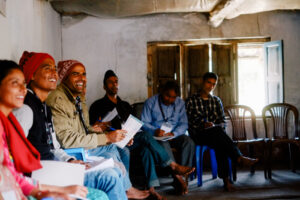
Using role playing and practical examples, we explained very simply what a business plan and a SWOT analysis were. Financial planning and basic notions of accounting to calculate profit or loss for their business were also covered. We carried out regular individual follow-up for each of the participants in order to learn more about their environment and their business idea, and to guide them in setting out their own business plan.
One day, we brought our trainees to a big market in the nearest town, Hetauda.
The aim of this was to make contact with suppliers, to observe competitors and consumers, or just to observe the activities of a business similar to that which they wish to set-up.
This first real application of our training enabled the trainees to put into practice what they had learnt over previous days and to slip into the shoes of an entrepreneur instead of a consumer. The visit was very much appreciated. We followed-up with a debriefing and an account, in order to get feedback from everyone and to identify what could be further improved in their initiatives and observations. We then looked back on this visit frequently as it was a recent and tangible example on which to base our reflections.
Immersion in the village
Joana and the sari parade in the village
We made the most of every day that we spent in Bagdali. It was a very intense experience. We were invited to eat with several local families and we met children and adults with whom we shared culture and traditions. We were an integral part of their lives during those few days.
We were lucky enough to take part in a marriage ceremony inside the village and in different community festivals organised by Raleigh volunteers. A wonderful example of this was the sari and topi (traditional Nepalese hat) parade! Joana dressed for the occasion in a sari lent to her by Radhika, Aurélien’s hostess, and Aurélien tried on a topi!
The marriage was unforgettable. The whole village danced in the street all night long! The day after the wedding we were invited to feast with the family of the young bridegroom. All the girls in the village were responsible for adorning the bride with beautiful clothes, jewellery and make-up, supervised by a mother-in-law who was delighted to welcome a new girl into her family.
The water systems project
We visited a project for the building of water systems and sanitation facilities in a neighbouring village, Simaltar, similar to the project that the Bank is financing in another village, Gorka. We climbed the hills to discover the water reservoir under construction and the necessary plumbing to bring water to the village. It’s inspiring to see the commitment of the whole local community! With the help of Raleigh, every household is responsible for the building of toilets and a sanitary unit for washing hands, clothes and dishes, as they don’t have water to do so inside their homes. We saw men and women from the village work together towards the same goal: making water accessible to all.
The second week in the village of Aghor
The 2nd village visited, Aghor, at 2,000m altitude.
We left on the 3rd December for the second village, Aghor, situated at 2,000m altitude. The climate is completely different: colder and sometimes foggy. Crops are less tropical and more adapted to a mountainous environment. The inhabitants are mainly of Tamang origin (another Nepalese ethnicity).
The group of trainees
The group of 9 youths from the village, who were participating in our training course, have diverse business ideas, such as the production of mushrooms in greenhouses built in the village (some with help from Raleigh volunteers), the production of kiwis, of chicken, or a sewing workshop.
Upon our arrival, the villagers were shyer and more reserved than in the previous village. But our group of trainers quickly breaks the ice and makes the learning process fun and participative. Very soon we were invited to one of the trainees’ homes to drink a glass of fresh cow’s milk in the morning, to visit the grocery store of one of the women in the group where she teaches us how to make a spicy radish preserve, to visit the unit where you can wash your hands or clothes built by Raleigh volunteers, or even to play volleyball with village youngsters (who actually play really well as they beat us 2 sets to 1!).
The Himalayas
The Himalayas
In the evening, temperatures drop drastically in the village, easily reaching zero degrees! At sunset, we watch the Himalayas turn pink, touched by the last rays of sun. We woke up every morning facing those beautiful, peaceful, imposing, illuminated mountains.
The last weekend: visit to Kathmandu and Bhaktapur
Having finished our training on Friday, we returned to Kathmandu, using the dirt roads to travel across Nepal. This led us to the most magnificent locations, like the mountain of Chandragiri Hills at 2,551m, where there is a superb view over the whole of the valley of Kathmandu with the Himalayas in the background.
Photo 18: The superb view of the valley of Kathmandu, with the Himalayas in the background, from the mountain of Chandragiri at 2,551m.
During our last weekend in Nepal, we made the inevitable visits to the Hindu and Buddhist temples of Kathmandu and Bhaktapur, world heritage sites which are still magnificent despite having been damaged in last year’s terrible earthquake.
Joana in the temples of Bhaktapur
A big thank you to BNP Paribas in Switzerland and Raleigh International for allowing us to live this wonderful experience. These two weeks were full of emotions and made us want to go back to Nepal to continue what we started.
